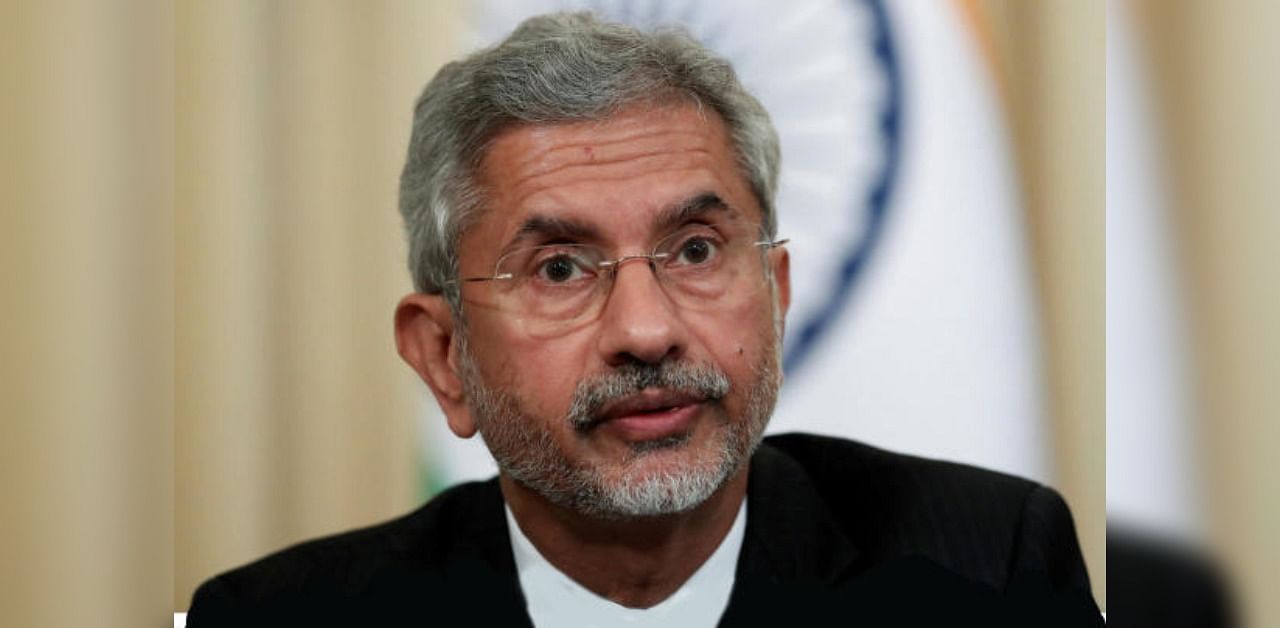
Multilateralism did not rise to the occasion when it was most in demand, External Affairs Minister S Jaishankar said on Thursday while referring to the "unprecedented" challenge thrown up by the coronavirus pandemic in diverse areas globally.
In an address at a roundtable of ASEAN-India Network of Think Tanks, Jaishankar said the world will never be the same again and that the impact of the pandemic has been beyond "our collective imagination".
"Current estimates put the cumulative loss in the range of $5.8-8.8 trillion or approximately 6.5-9.7 percent of the global GDP. The contraction of the world economy being predicted will surely be the largest since the Great Depression," the external affairs minister said at the virtual event.
At the same time, he added that the true extent of the pandemic's destruction in terms of loss of lives and livelihood remains "unclear".
Analysing the evolving world scenario, Jaishankar said the pandemic has brought the indivisible aspect of human existence that underpins globalisation, adding the new challenges have brought out the need for the international community to work together much more sincerely in search of collective solutions.
"The limitations of purely national responses or sometimes living in denial have become evident. It, therefore, underlines the need for the international community to work together much more sincerely in search of collective solutions," he said.
"The irony, however, is that just when multilateralism was most in demand, it did not rise to the occasion. If we saw little leadership, it was not just due to the admittedly anachronistic nature of key international organisations," the external affairs minister added.
Globally, coronavirus has infected over 22 million people and killed nearly 7,80,000 besides devastating economies in most countries.
In India, around 2.8 million coronavirus cases have been reported, while the number of deaths due to it is around 53,800.
In his address, Jaishankar said the current situation also reflected the intensely competitive nature of current international politics.
"Indeed, if one goes beyond organisations and structures, this was even more evident in the individual behaviour of many states. Therefore, the big issue that confronts the thinking world is not simply the state of the economy, the damage to societies or the challenges to governance," Jaishankar observed.
"It is actually a debate on the future directions of global affairs and what kind of world order – or disorder – we are going to live in," he said.
As a result of the current situation, Jaishankar said "trust" was the most valued commodity in international relations today.
"We had already seen in many quarters national security being redefined to include economic security. More recently, this then led to questions and concerns about technology security," he said.
"The pandemic has now added to that the importance of health security. In fact, the concept of strategic autonomy that was once fashionable in a unipolar world has now assumed relevance once again in terms of global supply chains," he added.
The external affairs minister also spoke about India's ties with the 10-nation ASEAN (Association of Southeast Asian Nations), considered one of the most influential groupings in the region.
India and several other countries including the US, China, Japan and Australia are its dialogue partners.
The ASEAN region along with India together comprises a combined population of 1.85 billion people, which is one-fourth of the global population and their combined GDP has been estimated at over $5 trillion.
"We are not only proximate to each other but together help shape Asia and the world. It is important that at this juncture, we put our heads together. There are conceptual issues to debate including Indo-Pacific. The Indo-Pacific Oceans initiative that we have tabled needs elaboration," he said.